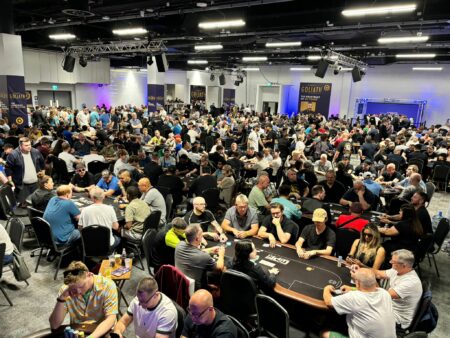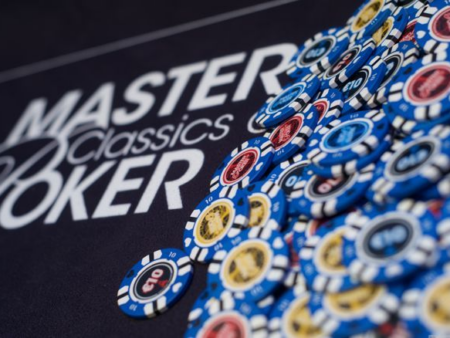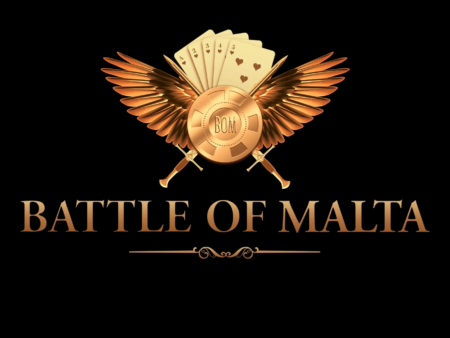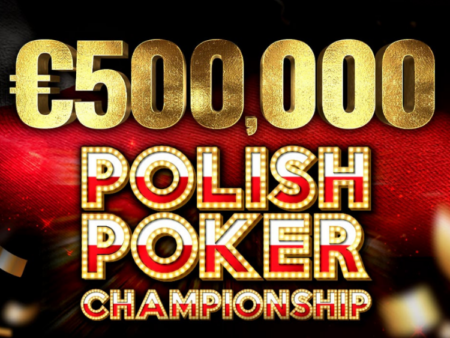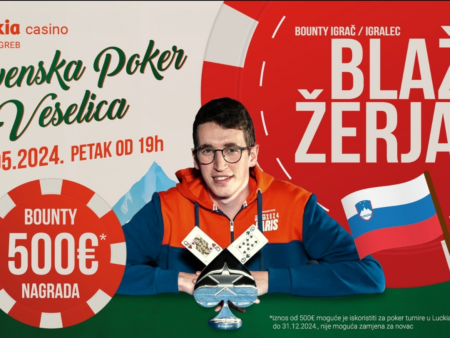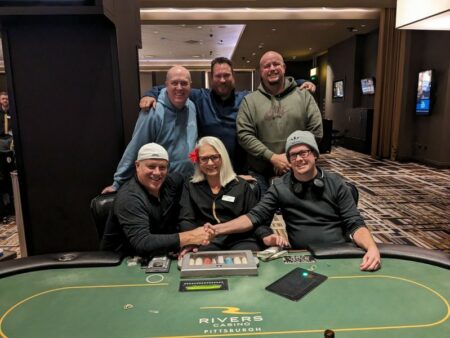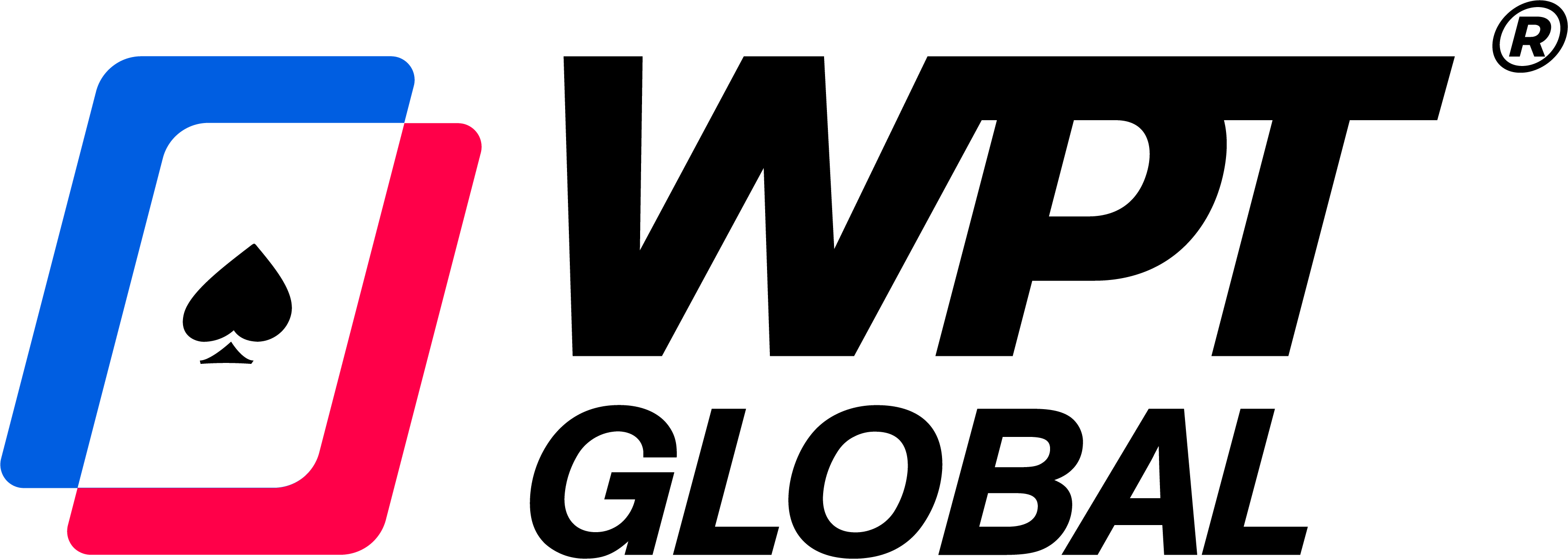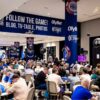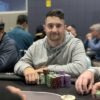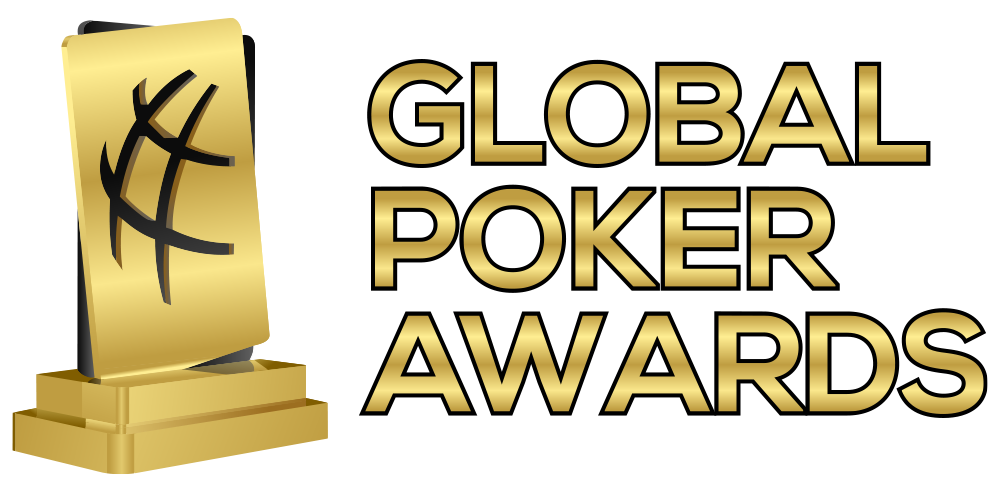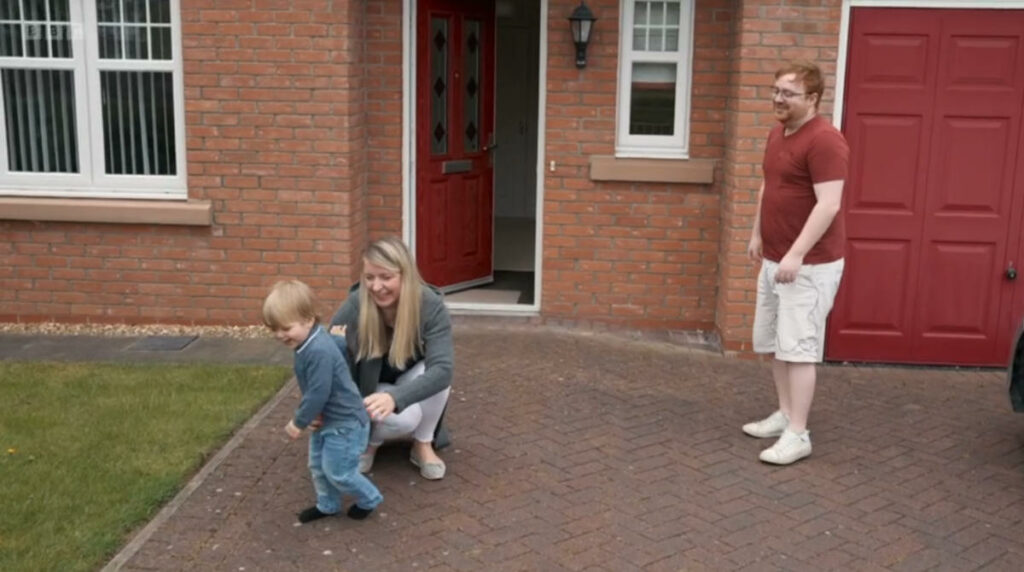
Poker has famously been described as the “hardest way to make an easy living” and the 60-minute documentary following the Scottish poker star Niall Farrell, “The Four Rules of the Poker Kings” from BBC lays that bare. The documentary follows the veteran professional through about a year of life on and off the tables for a fascinating look behind the scenes at the highs and lows of an “easy living”.
Farrell goes through it all as the camera crew follows him at the tables and away from them. We get to see how a professional player manages the emotional variance that a career in the game brings, made doubly hard by recent changes in his life. It’s those life changes that ultimately make it worthwhile for Farrell, however, as he sums up his poker journey in the final lines of the documentary.
Standing in front of his modest Dumfries home watching his partner and “wee man” run around the garden, he is reminded of what the game is all about. “It’s just a game. It doesn’t matter what happens at the poker table – I’ve already won at life.”
From Party Animal to Family Guy
Farrell made a pretty big transition in his life recently. Players who know “FIraldo”, as he is known online, from his early days in live poker remember a relentless party animal who none-the-less still crushed at the poker tables. In the BBC documentary, Irish pro and prolific author (with co-author Barry Carter) Dara O’Kearney may have put it best.
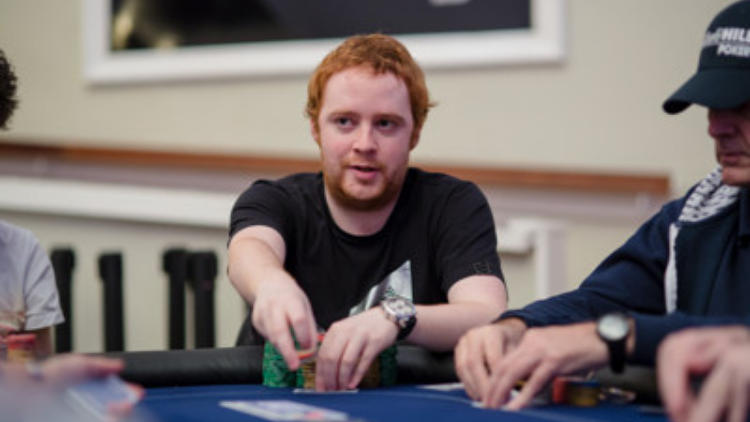
Speaking about what makes Farrell a “complete player”, the Unibet ambassador and Chip Race co-host said “He’s very good at appearing very, very drunk and still playing perfectly. He’s actually drunk, but he’s the player who can play the best drunk, in my experience. It just doesn’t affect his play at all.”
In his early years, Farrell was notorious for both his bar tabs and his solid poker play. I first met him in 2014 while he was living abroad in Canada and he was infamous in the local Calgary scene for taking down trophies while “very, very drunk”.
We hung out for a bit in Dublin in 2020 as well, blissfully unaware of the impending pandemic. Along with UK pro Jack Hardcastle, I spent an evening with Firaldo, Guinness (from the source!), and the infamous Jaegerbombs after a long Day 1 session where both players bagged a stack. While this old reporter couldn’t dream of keeping up with Farrell and Hardcastle, both came back for Day 2, albeit late and very hungover for Farrell.
He powered through the hangover for a deep Day 2 run to bag an 11th-place finish in the Unibet Open Main Event while also picking up a 2nd in the high roller event earlier in the series. Even at that time, however, things were starting to change in Farrell’s life.
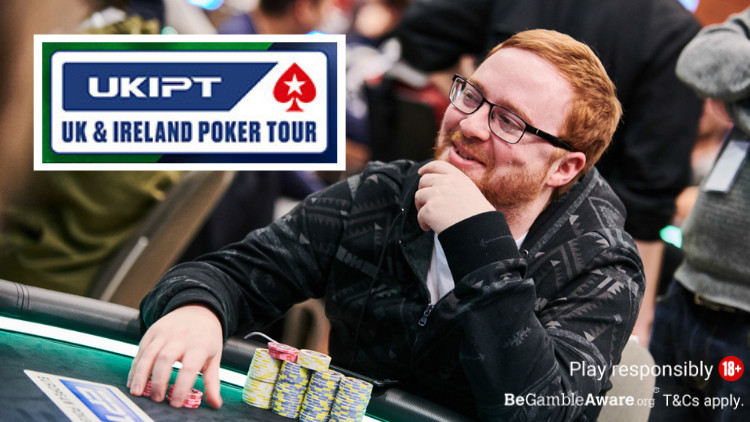
The Family Guy
It’s clear in the Four Rules that the “wee man” that’s come into his life since getting together with his partner Edita Dulko has had a strong impact on his outlook on life. He thinks more about the future now, and about much more than just the next hand, the next tournament, or the next party.
In the early days of their relationship he and Dulko, who was also in the industry and often going to the same places as him, were able to travel together. Since the arrival of his son, though, his poker trips tend to be more singular affairs, and that clearly takes it’s toll now.
In the past, where he might end the day in the bar, or possibly studying spots for the next day, these days he’s more likely to be on his phone to Scotland to talk with Dulko and his son. With the time difference at the World Series of Poker, a trip that closes out the look into his life, he was often seen saying good morning to his family across the pond after a long day at the tables.
The Long Game
“Is this going to pay off in the long run?” That was the question German pro Felix Schneider pointed to as the critical decision to make for a player at the tables.
O’Kearney echoed that sentiment. “You’re playing the long term. It doesn’t really matter what happens on any given day — if you’re a good player, you’re gonna make money in the long term and just don’t focus on the short term.”
That, of course, is all easier said than done on the poker tables. While it is a skill game at its root, and better players will absolutely make more money, it’s also one of the few professional occupations where variance plays a large role in the day-to-day outcomes.
Especially in the worlds of other athletic and mental sports, skill is almost always directly rewarded on the field of play. The best players always rise to the top, and when they play their best game, they almost always win. Tiger Woods. Serena Williams, Pete Sampras, Roger Federer, Wayne Gretzky, Mario Lemieux, Connor McDavid, Michael Jordan, LeBron James — in their primes, when they played their best games, no one in the world could beat them.
Poker is a different beast. The best player in the world can wake up with pocket kings against a rank amateur who has aces, and 80% of the time, the amateur is stacking chips while the world #1 is going home. That NEVER happens in a chess or tennis tournament, but something similar happens in nearly every poker tournament that’s ever run, at least once or twice.
As Farrell points out in the documentary (and as I mentioned in my recent Poker Adventures piece), even the best players in the world should expect to lose (ie, bust before the money) 80-85% of the tournaments they enter. While that is the result of variance in the way the cards come out, it has a real impact on the psyche of players through emotional variance. It can be hard to see the long game when you are busting tournament after tournament.
It’s Not About the Money You Win, It’s About What’s Left on the Table
One of the interesting side effects of that emotional variance for top pros is that it’s not always strictly about the money. It’s about winning as much as anything else.
In a couple of crucial scenes in the Four Rules, we see both sides of the coin. In the first, Farrell is deep in a big game in Prague with hundreds of thousands up top but runs into a nasty cooler to bust in 16th place for about forty thousand. The devastation was obvious, with him saying after the bust he’d rather be back working his retail job despite winning plenty to have a profitable trip.
Fast forward a few minutes in the show, and he’s just won a tournament at UKIPT Dublin for about sixty thousand, and he’s over the moon about it. It goes to show that the raw monetary amounts won are sometimes less important, emotionally at least, than winning, and conversely, what is left on the table when you don’t collect all the chips.
Both results are great examples of the variance professional players have to navigate. The hand that he busted the EPT on was a bit of a bad beat where he was miles ahead preflop, only to see his queens cracked by a turned diamond flush.
That’s Your &^%&’ing Poker Documentary
The hand that won Dublin, on the other hand, came down to a “coin flip” and Firaldo summed up MTT poker right there. “Classic race. So we play for two days and the whole tournament comes down to who wins a 50/50. There’s your fucking poker documentary!”
He spiked a set on the river in Dublin to secure the win, but the two results are sort of the perfect encapsulation of the emotional variance of tournament poker, or at least the winning ~15% of it. But while Farrell wears his heart on his sleeve in the moment, he also fully understands the long game, even more so now with Dulko and his “wee man” never far from his thoughts.
$6 Million Man
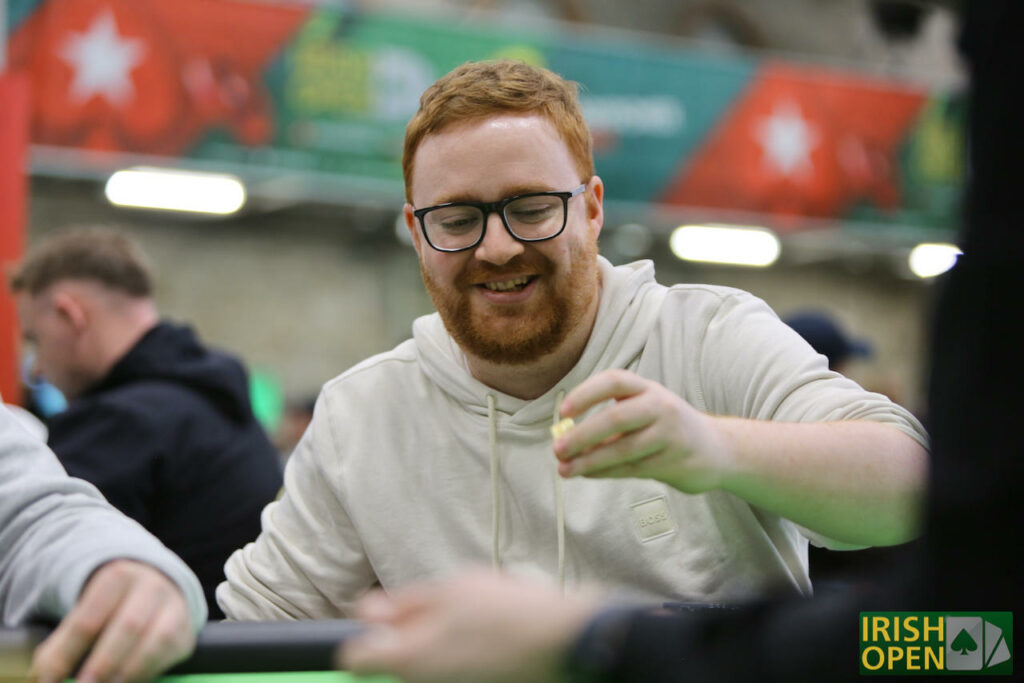
With more than $6 million in live poker earnings — he’s actually closing in on being the $7 Million Man — Farrell is clearly a force to be reckoned with on the poker tables. But part of his long-term strategy is to not leave everything up to variance. Near the end of Four Rules, he signed a sponsorship deal with GGPoker which no doubt provides some stability for the variance of his professional poker earnings.
While he hasn’t lost any of his zest for life, the modern Farrell is a more thoughtful, forward-looking person and player than his more party-animal past. The final scenes of Four Rules show exactly why — he now has a family at home to support, but also to rely on and take refuge with.
There’s a new Niall Farrell in town, but he’s not that different from the old one. You might still find him taking your chips while “appearing” very drunk deep in a big game, but what opponents might miss is that he’s playing for a lot more than just the chips these days.



